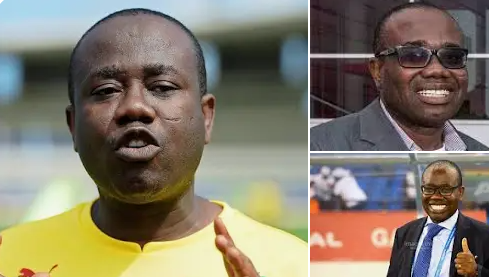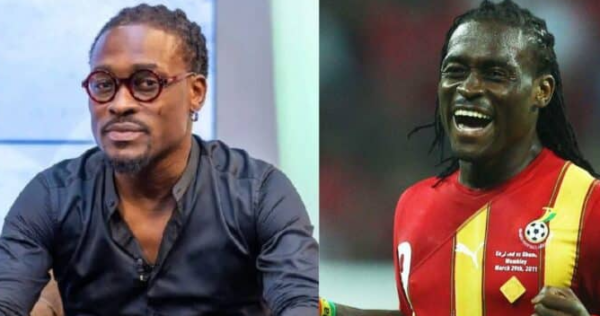In a shocking turn of events, former Ghanaian football star Derek Boateng has come out in support of disgraced former Ghana Football Association (GFA) President Kwesi Nyantakyi, calling for his return to the helm of Ghanaian football.
Boateng’s endorsement of Nyantakyi’s leadership is a bold move, given the controversy surrounding his exit from the GFA.
Despite the scandal that led to Nyantakyi’s departure, Boateng insists that his track record speaks for itself. During Nyantakyi’s tenure, Ghana’s national teams achieved impressive results, including a quarter-final finish at the 2010 World Cup.
Boateng believes that Nyantakyi’s leadership was instrumental in these successes and that his return could help revitalize Ghanaian football.
The current state of Ghanaian football has been facing criticism, with many calling for change.
Boateng’s comments have sparked debate about the future of the sport, with some agreeing that Nyantakyi’s return could be the answer to Ghana’s football woes.
Others, however, remain skeptical, citing the scandal that led to his exit.
Boateng’s call for Nyantakyi’s return raises questions about the former GFA President’s potential role in Ghanaian football.
Could he return as GFA President, or would he take on a different role? Whatever the case, Boateng’s endorsement has ignited a conversation about the future of Ghanaian football and the potential for Nyantakyi’s return.
Kwesi Nyantakyi, a Ghanaian banker, lawyer, and former football administrator, once wielded significant power as the president of the Ghana Football Association (GFA) from 2005 to 2018.
However, his reign ended in scandal when an investigative video by Anas Aremeyaw Anas exposed him taking a bribe and boasting of his ability to “take over the whole country.”
Nyantakyi’s initial denial of wrongdoing was soon overshadowed by FIFA’s swift action, banning him from football-related activities for 90 days.
His subsequent resignation was mere formality, as FIFA’s investigation led to a lifetime ban in October 2018.
However, Nyantakyi’s story took another turn when the Court of Arbitration for Sport reconsidered his case, reducing the ban to 15 years in October 2020.



